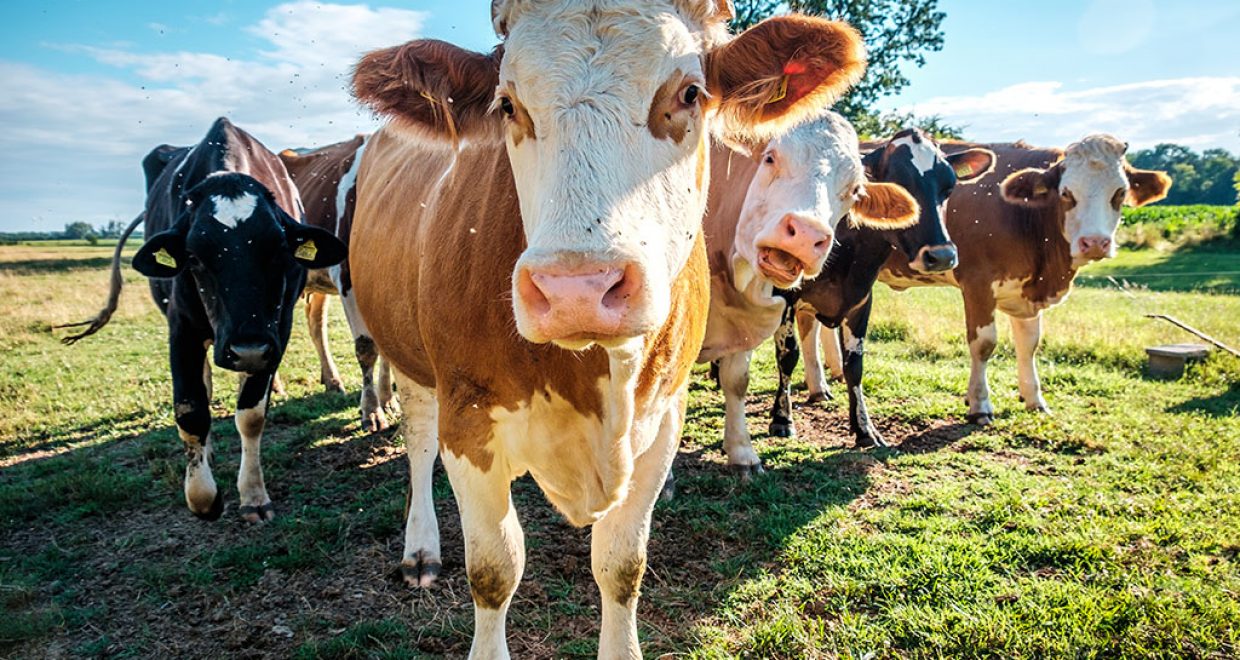The role of faeces in understanding animal health and immunology
The latest Paper of the Month from Parasitology is ‘The latest FAD – Faecal antibody detection in cattle. Protocol and results from three UK beef farms naturally infected with gastrointestinal nematodes‘ by Dr. Andrew Cooke
Drug resistance is a major risk to animal welfare and livestock production. The indiscriminate treatment of entire groups of animals accelerates the problem. Best-practice recommends only treating animals which would suffer without treatment. To achieve this, we need effective tools to assess animal health.
Every animal is a unique individual and therefore responds uniquely to an infection. One individual might be able to tolerate a disease challenge far better than another. Immunology, the animal’s defensive response to infection, is a key part of an animal’s ability to cope.
 Collecting animal blood samples for assessing immunology is not always realistic due to logistical, welfare, and safety considerations. Furthermore, blood samples can only tell us what has been released into the blood, when parts of the immune system are active outside of that, for example at the gut surface. The goal was clear, we needed a non-invasive method to look at gut health. It didn’t take long to realise that similar methods are commonplace in human medicine for the diagnosis of conditions such as Crohn’s disease. If markers of gut health can be picked out in human faeces, surely, they can be found in animal faeces too?
Collecting animal blood samples for assessing immunology is not always realistic due to logistical, welfare, and safety considerations. Furthermore, blood samples can only tell us what has been released into the blood, when parts of the immune system are active outside of that, for example at the gut surface. The goal was clear, we needed a non-invasive method to look at gut health. It didn’t take long to realise that similar methods are commonplace in human medicine for the diagnosis of conditions such as Crohn’s disease. If markers of gut health can be picked out in human faeces, surely, they can be found in animal faeces too?
We adapted well established methods designed for detecting antibodies in blood and adapted them to be used on faeces. We achieved this using a faecal supernatant, a liquid extract of the lighter components of faeces, somewhat analogous to what serum is to blood. We then used the diagnostic tools on this supernatant, similar to how they would be applied to blood samples.
Results showed that we were successful in detecting faecal antibodies, and importantly, that this did not correlate to blood antibody levels. This supports the idea that the antibodies that we detected were potentially from the gut wall, where many parasites can cause damage.
The main output of this research is the potential to for it to assess animal gut health and the value that that information could have towards wider animal health diagnostics and research. It also highlights an area for advancement within the field through the development of rapid diagnostic tools for livestock health. As the procedure is entirely non-invasive, it is practical in a wide range of situations, including for use with evasive or dangerous animals.
The paper ‘FAD – Faecal antibody detection in cattle. Protocol and results from three UK beef farms naturally infected with gastrointestinal nematodes‘ by Dr. Andrew Cooke is available free for a month
Photo credit: Completed 96-well plate showing varying antibody concentrations






